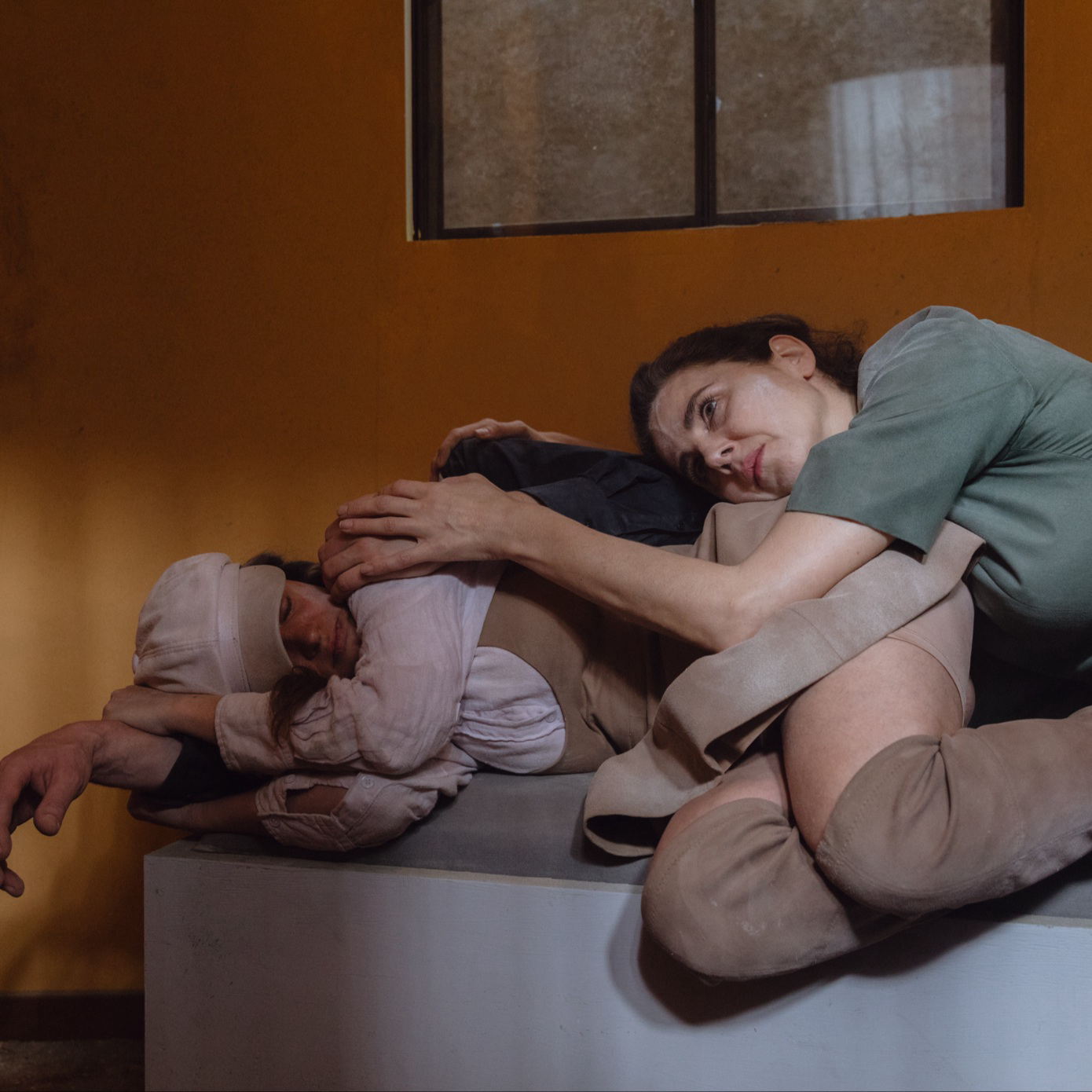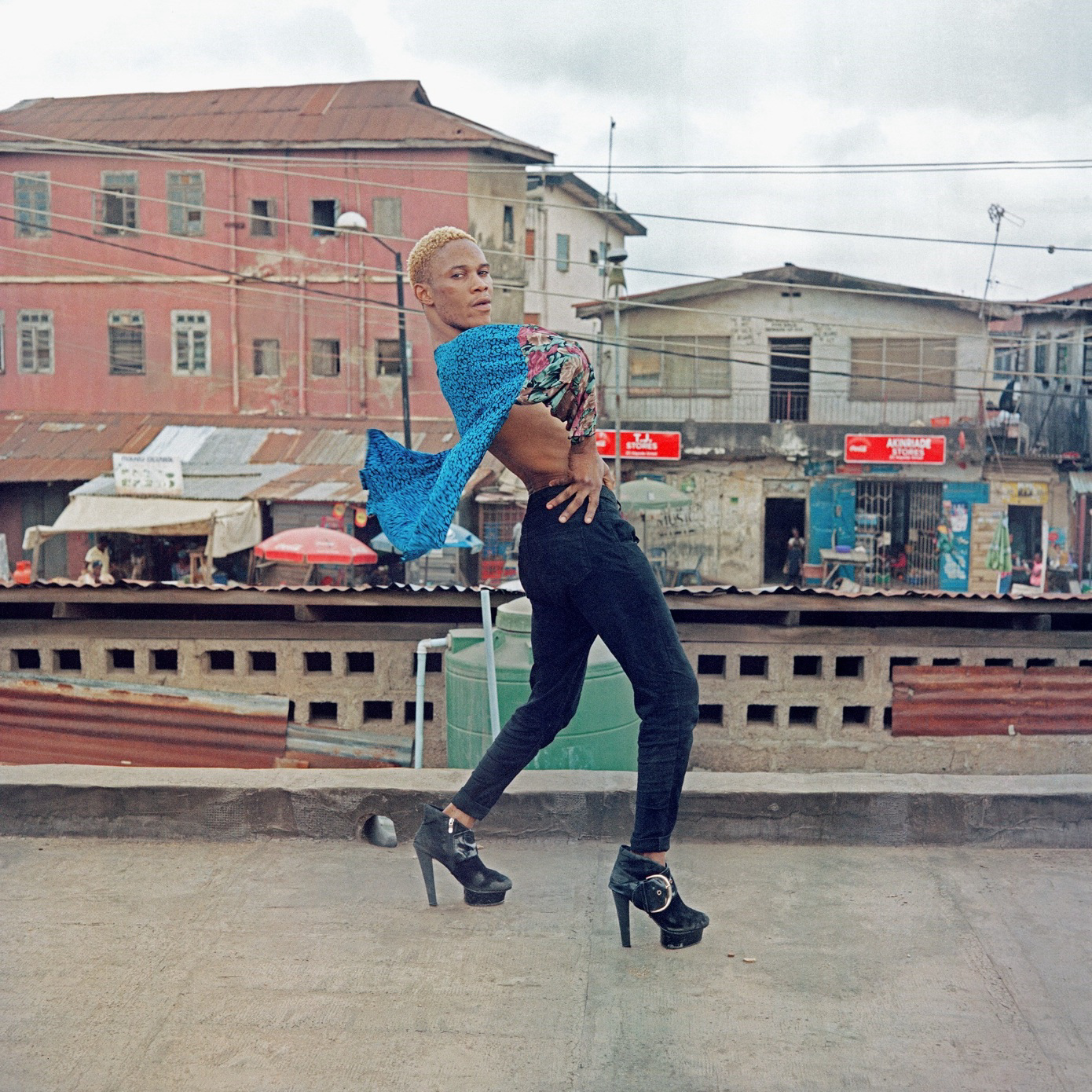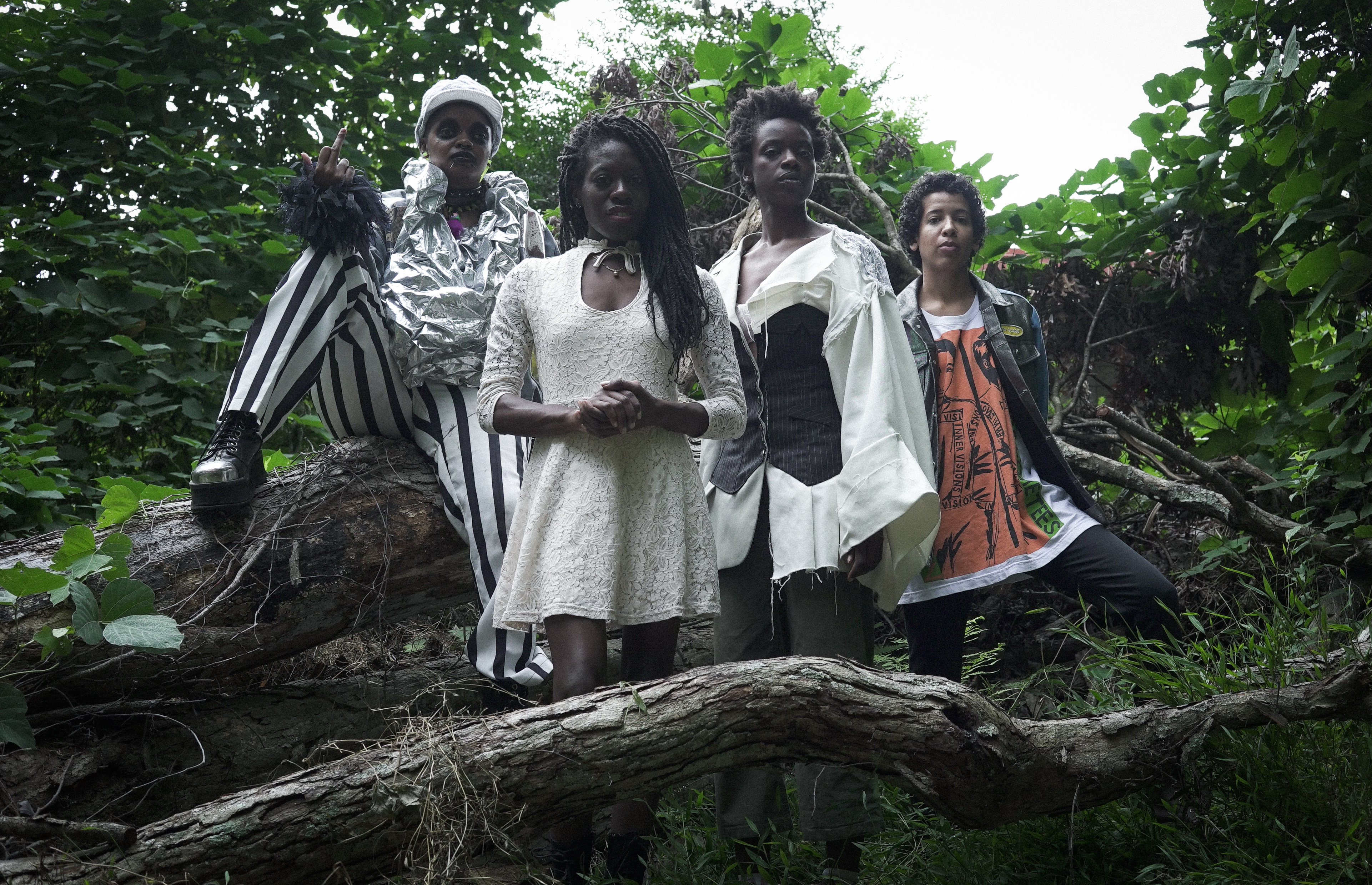
The day before the band Fuck U Pay Us left for the summer leg of their Reparations Tour 2018, its guitarist and cofounder Uhuru Moor dropped the Black Magic School Bus, aka the Snatch Bus—a retired, yellow, short school bus—off at my house. I met Uhuru in 2014 when their Afrofuturistic art collective #SNATCHPOWER was doing its first burlesque show. “An artist collective that consists of anyone who loves and respects or is Black, indigenous, femme queer or trans people of color and collectively wants the cis white heterosexual capitalist patriarchy to crumble,” #SNATCHPOWER is now an international reality with chapters in Bangkok and Japan. I joined the collective then, and years later, we bought the Snatch Bus.
They were dropping it off at my house because the Black punk band was leaving for Sweden the next day, then on to New York to play Afropunk the following week, and then they were off to Chicago. Once we got the bus settled in at my place in Bloomington, California, we—Uhuru, their godson Wolverine and I— hopped in my ’93 Toyota Camry and drove the 50 or so miles to Los Angeles for the final pre-tour FUPU rehearsal—where I would conduct this interview.

We met at the house of Tianna Nicole (FUPU’s drummer) where we were greeted with smiles and hugs and refreshments and all of the cozy and warm things Tianna brings to every experience I get to share with her. Tianna had made these delicious Mediterranean burgers, and as Wolverine and Uhuru and I enjoyed the food, other band mates, Jasmine Nyende and Ayotunde Osareme—the band’s lead vocalist and bassist, respectively—joined us at the outdoor dining table to feast, discuss band business and coo over Wolverine. Amidst this cool and easy mixture of food and love and children—a rare space in which to catch FUPU for an interview—we talked about their responsibilities in the band, what they would do with a utopia of their creation and the problems with filtering Black art through the English language.
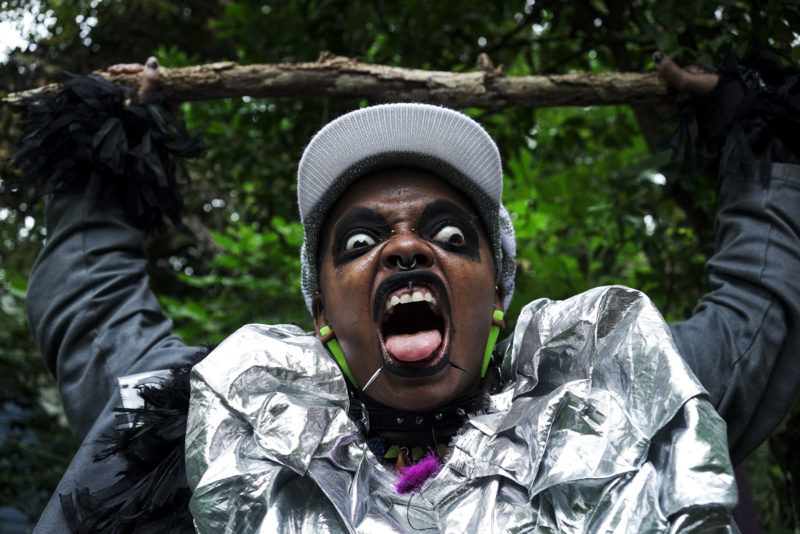
“If you died today, and someone had to replace you in the band, what’s the main thing they need to know?” I start off lightly. Jasmine responds that you have to check your ego to rock a mile in her shoes. “Because being afraid of not being what the patriarchy tells you you need to be is what’s gonna make you feel nervous on stage.” The singer, who also models, may be an expert on challenging patriarchal norms and ignoring the need to be attractive.
The only way you can tangle with the daring, often-topless electric guitarist Uhuru is by staying attuned to the spirit realm. “Listen to your ancestors and transcend all other things on the earth to make sure the music stays at its highest. That comes out in the spirit of the guitar. You can’t just be playing notes. You gotta be more free-spirited than that.”
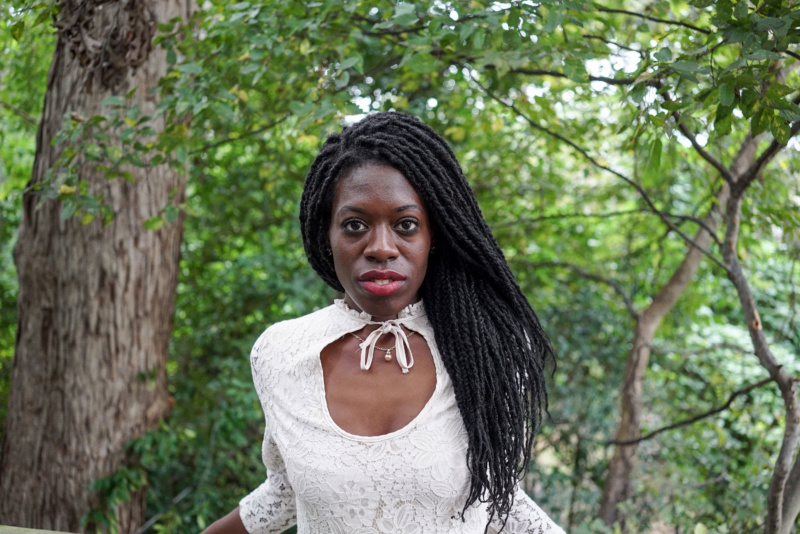
Ayotunde says you can’t be too married to structure if you want a chance at the FUPU bottom. You have to “be open to things changing. And stay present.” If you desire to drum for your due, FUPU’s rhythmic OG Tianna says, “Listen to everybody, find your vibe, communicate and learn what works between you and the rest of the band.”
But what if this punk quartet was not playing for reparations anymore? What if the Fuck U Pay Us demand was met? What would they play then? Would they even exist?
“Of course we would exist!” Uhuru laughs. “We always exist. Eternally. We have funk music, we have blues songs, we make punk, we make rap songs and pop—we just make music. Like Nina Simone talks about: Freedom is freedom from the need to be free. That’s a next-level sound too.”
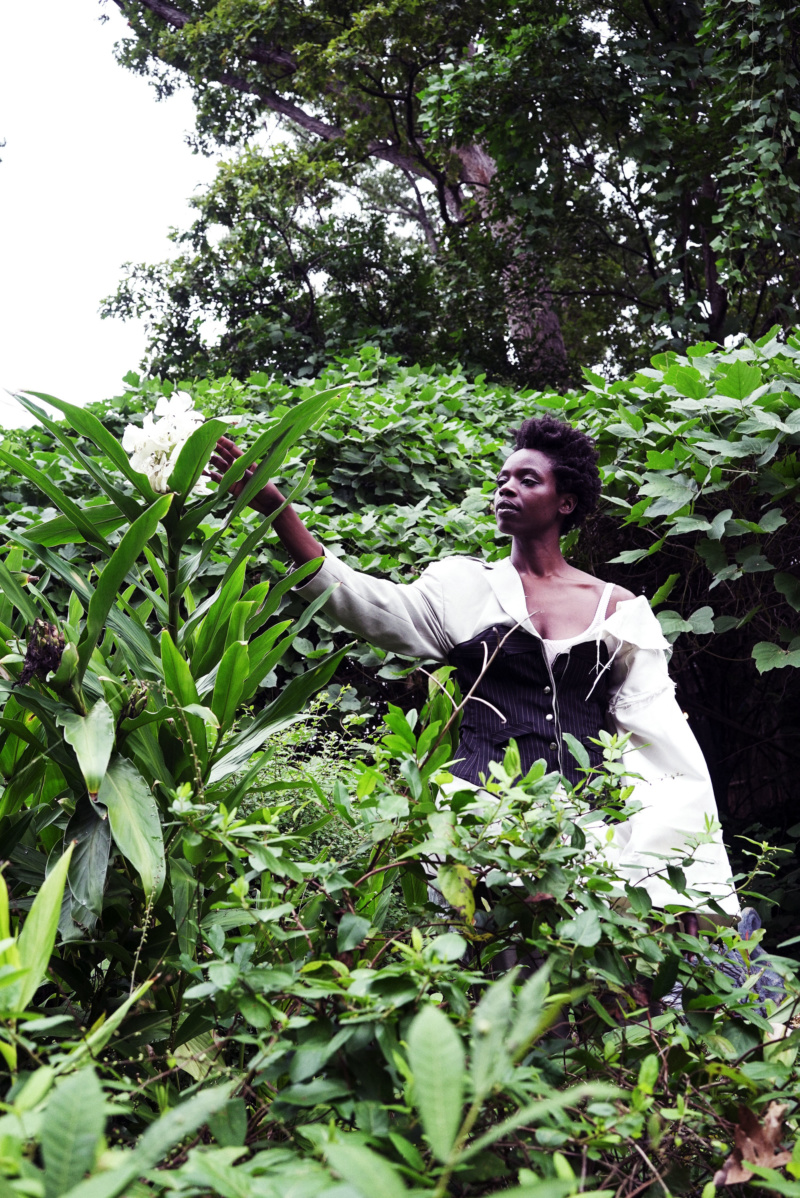
“There are a lot of indigenous societies that have been able to preserve their culture for thousands of years,” Ayotunde adds. “So I would like us to write more songs about the fact that we don’t want any interference with these cultures.” FUPU would also make “more songs that imagine black futures,” if it were up to Tianna.
Having to use your oppressor’s tongue to voice your lament against him is not without its challenges, and FUPU is working its way through that. “English always feels like it is dumbing down what my spirit is really trying to say,” Uhuru expresses. “I’m communicating with the spiritual realm and translating to the material realm in the white man’s tongue. It’s very complex for me.”
“We were singing ‘Nappy Black Pussy,’” Jasmine starts, “And someone was like ‘But what if I got good hair down there?’ And I’m like, ‘Nappy hair is good hair.’ That shows how important FUPU is. We’re saying, ‘Idolize this shit! Our naps are God-given.’”

